2017 Lexus RX 350
4dr SUV (3.5L 6cyl 8A)
Vehicle Summary
Mileage: 56,077
Ext. Color: Exterior Color Biege
Int. Color: Interior Color Parchment Leather
Transmission: Automatic
Drivetrain: Front Wheel Drive
MPG: 20 city / 27
Horsepower: 295 hp
Max Towing Capacity: 3,500 lbs
Standard Payload Capacity: 1,444 lbs
Seats: 5
VIN: 2T2ZZMCA5HC060779
FEATURES & SPECS
RX 350 AWD
RX 350 F Sport AWD
RX 350 F Sport FWD
As a style-conscious statement of indulgence, the Lexus RX shines like never before. Its looks are polarizing and it’s not all that fun to drive even in F Sport form, but the RX continues to excel in many ways.
Almost ubiquitous with the term “luxury crossover,” the Lexus RX was redesigned last year with a far more lavish look and feel inside and out.
It’s a daring breath of fresh air for the model that essentially pioneered this premium, upscale segment.
We like the current Lexus RX, even though it’s not quite as polished to drive as some rivals. With its solid feel and eye-catching looks, the RX rates a 7.3 out of 10 on our scale. (Read more about how we rate cars this year.)
The RX is available as either the gas-only RX 350 or the hybrid RX 450h. A special F Sport trim level is available that adds its own adaptive suspension setup.
2023 lexus rx 350 specs
FAQ
Which model Lexus is the best?
Is the Lexus RX 350 a reliable Car?
What is the average life of a Lexus RX ?
Is RX Lexus a good car?
interior luxury and exteriorinterior luxury and exterior, reliable but still embraces, luxury and exterior style, exterior style available
interior luxury and exterior, interior luxury and exterior, embraces interior luxury, exterior style available, still embraces interior,
style available to test, lexus of las vegas 2023, spacious and reliable, lexus rx 350 premium.
For 2017, the RX gains as standard some previously optional features: automatic emergency braking, adaptive cruise control, and automatic windshield wipers are the highlights.
Lexus RX styling, comfort, and performance
It may be a bit of a cliche to call the RX bolder than ever before, but considering the precedent of “jellybean” RXs that preceded the current model, that label is especially apt.
It’s the most adventurous Lexus crossover design to date, and it’s among the most striking vehicle designs you’ll find anywhere.
The even edgier F Sport with its razor-sharp grille and 20-inch wheels isn’t for shy drivers by any means.
Inside, the RX’s dashboard is sporty and almost sedan-like, aside from its high seating position and, of course, the view out the rearview mirror.
The dashboard cants toward the driver and there’s a wide array of climate control and basic audio buttons that are well-organized.
Trims and materials in the RX family look and feel bucks up, for the most part, against the model’s German rivals. There’s good room up front thanks to a body that grew about 5 inches overall compared to the previous model. Unlike some of its competitors, the RX has seats and seat belts for five passengers; there’s no third row, something Lexus leaves for its more truck-like GX 460 lineup.
There are two primary models of the RX: The RX 350, powered by a 295 horsepower, 3.5-liter V-6, and the RX 450h hybrid with its own version of the V-6 tuned for improved fuel economy and paired to an electric motor-generation system. The RX 350 is available as a front-wheel drive model or an all-wheel drive model, while the RX 450h is all-wheel-drive only.
All models can be ordered with the F Sport performance package, which has proven popular enough with shoppers that Lexus is making it available on both front- and all-wheel drive RX 350 models for 2017 (previously it was only on the all-wheel drive RX 350 and RX 450h).
Underneath, all RXs look the same at first glance with their MacPherson strut front and double-wishbone rear suspension setups.
Tuned primarily for comfort, the suspension does give the RX a more poised feel than its soft-riding predecessors, but it’s the F Sport’s adaptive suspension setup that delivers a firmer ride and more responsive handling, although no model boasts particularly communicative steering.
The RX isn’t at all an off-roader—that duty is again left to the pricier but decidedly rugged GX.
Lexus RX safety and features
Lexus takes a big leap forward for 2017 by making a previously optional suite of collision prevention tech standard for 2017.
All models now include automatic emergency braking, adaptive cruise control, lane departure warning, pedestrian detection, and a system that can nudge the crossover back into its lane should it start to drift. That’s in addition to the expected safety features like a full complement of airbags and stability control.
What’s surprising is that the while the RX aced the IIHS’ challenging barrage of crash tests and has been awarded its Top Safety Pick+ award, the crossover only scores four out of five stars overall in the federal government’s assessment.
Even the base RX is well-equipped, but most RXs you’re bound to find on a dealer lot will have the optional Premium Package that replaces leatherette with leather and adds in a few other goodies expected on a luxury car.
On the tech front, the optional navigation system is controlled via a computer mouse-esque controller that we neither love nor hate. It takes some acclimation, but it does work—just not as well as infotainment knobs seen in rivals.
There’s also a rear-seat entertainment system available, with 11.6-inch screens at the back of the front headrests, and a huge panoramic moonroof for skylight above front and rear passengers.
The RX 350 is rated at 20 mpg city, 28 highway, 23 combined with front-wheel drive, or 19/26/22 mpg with all-wheel drive, according to the EPA. Meanwhile, RX 450h hybrid models achieve 30/28/30 mpg with all-wheel drive.
Read less
7
2017 Lexus RX
Styling
The Lexus RX is certainly controversial, but we have to admire Lexus for taking chances.
It’s the kind of design that will either lure you into a showroom or keep you away, but we have to give normally conservative Lexus serious props for creating a crossover that truly stands out.
We’ve awarded it an extra point each for its interior and exterior, both of which are excellent for very different reasons. Overall, the RX scores a 7 out of 10 for styling. (Read more about how we rate cars this year.)
The RX starts with some familiar details, with an especially dramatic version of Lexus’ now-signature spindle grille in front, with so-called “triple-L” headlights, LED fog lights, and LED daytime running lights. Its second most notable design cue is its “floating” roof line, which tapers near the rearmost roof pillar to provide a more coupe-like profile than its actual proportions reveal.
There’s some Nissan Murano to the RX’s side profile, and that’s not really a bad thing.
Then again, we think the RX lacks some cohesion.
It’s a mashup of a few different design inspirations that, admittedly, work pretty well as a sum. It’s expressive and will continue to draw you in every time you look at it in the driveway, much in the way a concept car at an auto show might.
Inside, the look is comparatively normalizing—it’s a place of order, calm, and precision; it’s not too busy, and it lets you forget that you’re in a vehicle that’s so involved from the outside.
The dash and door trims of the new RX follow the look established by the latest GS and IS sport sedans—thankfully much more than the somewhat over-the-top, edgy-and-layered look of the smaller NX crossover. Just like nearly every other vehicle in the Toyota and Lexus stable,
the dash makes a move to follow more of a horizontal orientation, and some nicely drawn, asymmetrical curves frame the center stack (which is canted toward the driver) and the center console, which has its own unusual upkick and curve on the right side, angling it over toward the driver.
Altogether, this offers plenty of cues that the RX is focused a little more toward the driver this time around.
Otherwise, the RX cabins feel neat and well-designed—definitely less cluttered than some of Lexus’s other interior efforts of the past few years—with subtle colors, matte-black and matte-metallic trims combining to have the intended effect of being luxurious, as well as a good deal sportier than before.
Both RX 350 and RX 450h lines are offered in performance-oriented F Sport.
They add a special dark-mesh grille, a more aggressive lower front spoiler and rear bumper trim, 20-inch alloy wheels, and F Sport badging—as well as exclusive F Sport seats, a unique steering wheel with paddle shifters, aluminum pedals and scuff plates, and F Sport gauges.
There’s also an F Sport-exclusive Rioja Red interior leather hue. For 2017, the F Sport range is offered with a choice of front- or all-wheel drive, unlike last year when the package was all-wheel-drive only.
2017 Lexus RX
Performance
A strong powertrain and a nice ride quality elevate the RX.
With its edgy looks and sporty marketing, you might expect that the Lexus RX is a highly sport-oriented crossover…but that’s not quite the case.
While the RX is sportier than it has ever been, especially in F Sport guise, it’s still aimed mostly at providing a cosseting ride that smothers out the outside world.
We’ve given it an extra point for its ability to absorb big bumps with aplomb and for its strong engine lineup, bringing it to a 7 out of 10 for performance. (Read more about how we rate cars this year.)
There remain two engines in the RX lineup, but last year’s front-wheel drive hybrid has bitten the dust. That means you’ll have a choice between V-6-powered RX 350 in front- or all-wheel drive and hybrid RX 450h with all-wheel drive.
The V-6 in the RX 350 makes 295 horsepower and 267 pound-feet of torque. It features a variable valve system that allows a wider range of intake-cam timing and the fuel-efficiency-enhancing Atkinson cycle, and there’s also direct injection. An 8-speed automatic transmission is augmented by paddle shifters on the steering wheel on F Sport models.
A pre-loaded front differential also helps with cornering stability and performance immediately off the line. And in RX 350 models with all-wheel drive, the system uses clutches to vary the torque distribution up to 50 percent
to the rear wheels (or up to 100 percent to the front wheels).
While not rocket-fast, the RX 350 moves quickly and, perhaps more importantly, it’s a quiet operator. The F Sport model pipes some intake noise into the cabin for a more muscular growl, but even it is still a nearly silent cruiser.
Then there’s the RX 450h hybrid, which utilizes a different version of the 3.5-liter V-6, here making 259 hp and 247 pound-feet of torque, with a compression ratio bumped up to 13:1.
With its planetary drive system and twin-motor hybrid assistance, it operates as a full hybrid, with the vehicle capable of taking off in low-speed, low-load conditions on electric power alone.
The RX 450h’s all-wheel-drive system differs from the RX 350 in that its rear wheels are powered by a separate electric motor drive unit that supplements the gas engine. It’s a high tech solution to delivering more traction without using more gas.
That said, the RX 450h isn’t sporty, even in F Sport guise, because it features a continuously variable transmission that, while largely unobtrusive, does little to instill the sense of sportiness that Lexus wants.
RX 350 and RX 450h models get Normal, Eco, and Sport modes—all affecting powertrain responsiveness, power steering effort, and the degree of air conditioning use. F Sport versions get additional Customized, Sport S, and Sport S+ modes.
In Hybrid models, turning that controller over to Sport changes the gauge layout, with the “Power Meter” replaced by a tachometer.
Also, with the RX 450h, you now get an EV Mode that lets you (if the charge is adequate) run the RX in a quieter all-electric mode, for somewhat longer times than it would otherwise allow at low speeds.
Underneath the RX
The RX models keep their layout entirely car-like, with a MacPherson strut front suspension with lower control arms and a double-wishbone rear suspension. Lexus has softened the front suspension somewhat while aiming for a firmer rear-suspension tune—balancing that out with a larger anti-roll bar in front.
All versions of the RX include four-wheel ventilated disc brakes.
Lexus’ engineers shot for improved steering feedback with the latest RX—and while they achieved that goal, there’s actually more road feel when the system is in its lightest (comfort) setting.
Though the sport mode in the F Sport features firm steering, it’s not actually delivering any additional feel to the driver. Still, major strides have been made here toward making the RX a more composed and confident-feeling crossover—something we didn’t say about its predecessor.
F Sport models add the Adaptive Variable Suspension system that adjusts the damping force at all four wheels depending on the driving and road conditions.
The Sport S and Sport S+ modes provide even firmer control, while the system has a rugged-surface sensing system that will aid ride comfort when you do get to a particularly rough surface.
Wheels are 18-inch, seven-spoke alloys in base models, upgradeable to 20-inch high-gloss machined alloys or super chrome alloys with color inserts.
The RX uses a special Michelin Premier LTX tire that’s designed to improve its characteristics for wet-road performance somewhat as it wears.
2017 Lexus RX
Comfort & Quality
With its daring, premium-feeling interior, the RX stands apart from the crowd.
Lexus’ reputation for comfortable, upscale interiors remains intact with the 2017 RX lineup.
We’ve scored the RX an 8 out of 10 for comfort and quality, giving it extra points for excellent front and rear seat comfort as well as its high-quality feel. (Read more about how we rate cars this year.)
Easy ingress and egress comes courtesy of a ride height that’s neither too high nor too low.
Once inside, passengers will find fantastic front seats and excellent room in the second row especially for those at the outboard spots. F Sport models feature more deeply-bolstered seats up front that straddle the line between sporty and comfortable, while the Luxury Package adds 10-way adjustable thrones and a convenient thigh cushion extender, in addition to cooling fans.
In the rear, there’s a fold-down armrest with retractable cupholders. All models feature a 60/40-split backrest that reclines, but it’s worth noting that the RX 450h actually seats passengers about an inch higher in the rear due to the placement of their battery.
Taller passengers in the back may find that their heads will brush the ceiling if they’re wearing a hat.
A heated steering wheel is optional, and the climate control uses a some smart temperature and flow systems that take into account more variables than ever—and should result in better comfort for all. Luxury Package models also get pull-down rear sunshades.
There’s little wind or road noise, although RX 350 F Sport models feature piped-in intake noise that’s really only audible under hard acceleration.
The base RX features a synthetic upholstery that does a pretty good job of imitating leather. Opt for the Premium Package and you’re sitting on real hide, while the Luxury Package brings with it even nicer semi-aniline leather.
We really like the choices Lexus has made for the RX’s interior trim, especially the matte bamboo and gray sapele wood offerings on higher-spec models. They convey a more upmarket, bespoke feel than the RX’s price suggests.
Read less
2017 Lexus RX
Safety
The RX boasts surprisingly mixed crash-test results.
For 2017, Lexus has made standard important active-safety systems, a commendable move—but a surprising four out of five star assessment by the NHTSA this year prevents this crossover from scoring higher.
The RX earns points for automatic emergency braking and Top Safety Pick+ status from the IIHS, but it loses one for the NHTSA score, bringing it to 7 out of 10 overall. (Read more about how we rate cars this year.)
That said, the four-star rating from the NHTSA technically only applies to front-drive models, all-wheel-drive versions are rated at five stars overall.
This year, the RX earned four stars for rollover resistance (which is typical for tall-riding crossovers) and five for side impact, but only four for frontal impact.
The RX family earned a place on the IIHS Top Safety Pick+ list based on its top “Good” ratings in all areas of crash-testing, and including a top “Superior” rating for front crash prevention, with the now-standard Lexus Safety Sense package and its pre-collision system.
Importantly, Lexus has made the top active-safety systems—adaptive cruise control, automatic emergency braking, lane-keep assist and departure warning, and automatic high beam headlamps—standard equipment for 2017. Blind-spot monitors and a rear cross-traffic alert system is also available.
Those items aren’t factored into the NHTSA rating, however.
All the expected occupant-safety items are also included—10 standard airbags, including a driver knee bag and a passenger-side cushion-mounted anti-submarine airbag.
A rearview camera is included and features dynamic sight lines, while the available panoramic view monitor combines camera views around the vehicle, to help spot nearby bicyclists, pedestrians, objects, or other vehicles.
Outward visibility is decent, a surprise given the tapered profile and chunky rearmost roof pillar. However, Lexus lowered the model’s belt line with its 2016 redesign and made the other roof pillars narrower thanks to more extensive use of high-strength steel.

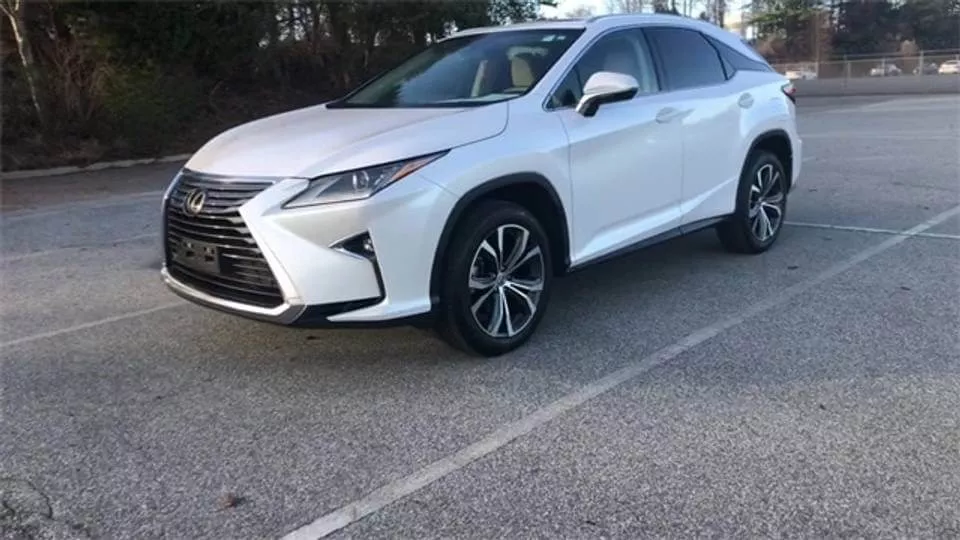
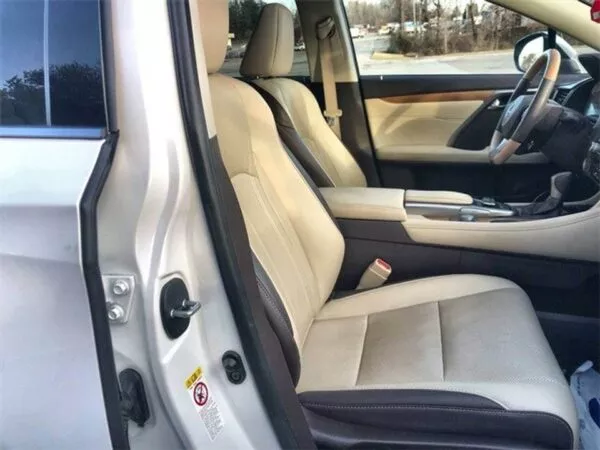
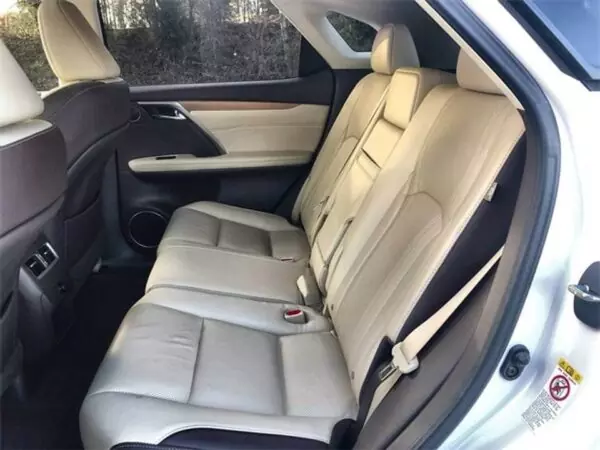
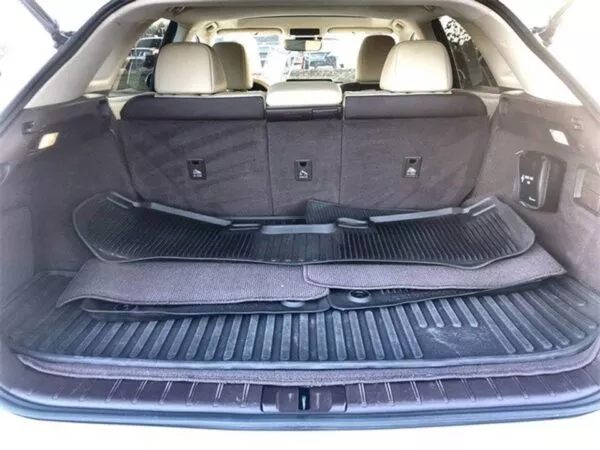
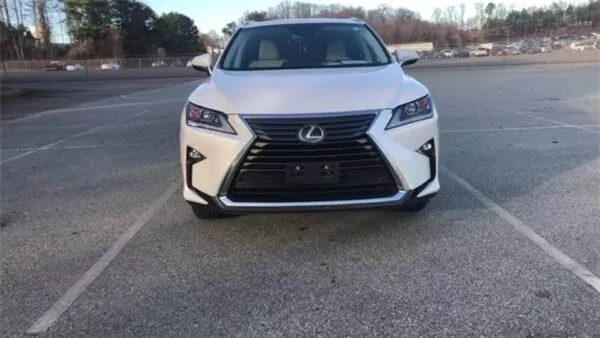


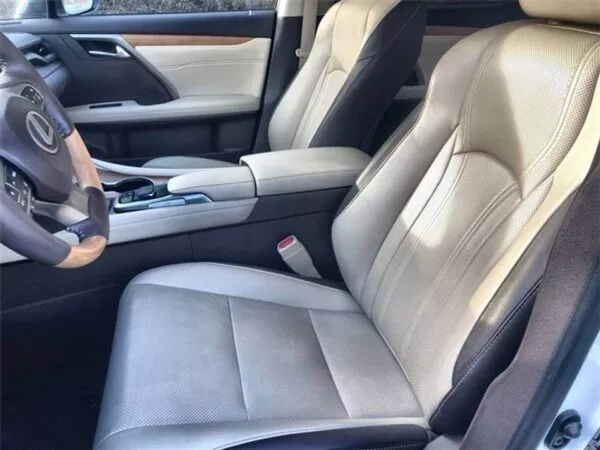




Reviews
There are no reviews yet.